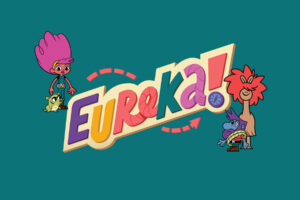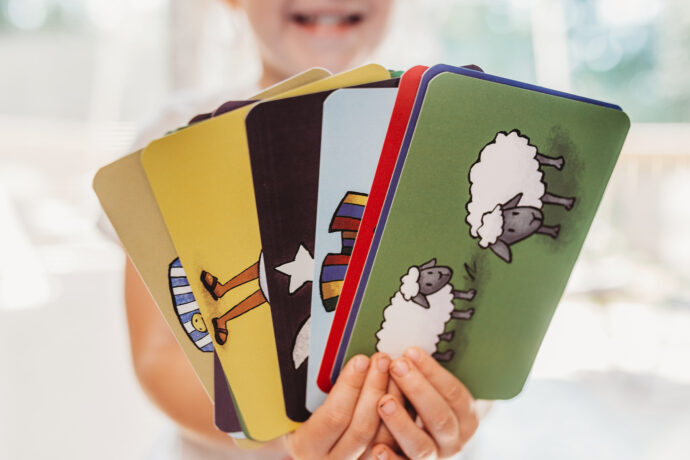When teaching kids, we have great Sundays and not-so-great Sundays, awesome small group time and way-less-than-awesome small group time, incredible Wednesday nights and please-let-me-forget-that Wednesday nights. But, during my years as a pastor to children and families, I heard one common refrain from almost all of the great, awesome, and incredible reports from teachers: “We had an amazing discussion. The kids were so locked in!”
Sometimes a class went totally off book because of one faith question from a curious child. Other times a question in the curriculum sparked a faith discussion that could barely be reined in by the end of class. These are the discipleship moments that keep us going. So how can we experience them on a regular basis? Eureka! is built to foster these faith discoveries in order to fuel the faith development of our kids. Here’s three quick ways you can spark discovery moments while using the Eureka! curriculum.
1. Start with Scripture. Eureka! does this for you, so this one is super easy. (It’s always good to start with an easy step.) Instead of starting with a topic or telling kids what they’re going to learn at the beginning of class, Eureka! begins with God’s Word. Then it provides a method to explore the passage (also called a hermeneutic), and asks the question, “What can we discover in here?” This approach totally changes the expectations for your time together. Kids get the message at the beginning that they’re going to be active in this discipleship process. There is something to be figured out, and they get a say in what happens next. They are needed.
2. Follow the curiosity of your kids. Let’s follow up the easiest step with possibly the most difficult. We have to release control over exactly where we end up. Before you start, you don’t know with certainty what faith discovery will be made at the end. Follow the curiosity of your kids and see where God leads.
This doesn’t mean a lesson has no plan. Eureka! is meticulously planned discipleship. There’s even a nine-step map to follow. But, as you follow the map, you’ve got to value the curiosity and input of the kids. Faith discoveries are made as kids participate, as you respond, and as the Holy Spirit leads. What does the story of Zacchaeus teach us? Let’s find out together. Let’s see where God leads.
This is not a “whatever happens, happens” approach. You shouldn’t spend twenty-seven minutes talking about the size of Goliath’s ear lobes just because Marcus wants to be an ear doctor when he grows up. Not-so-focused moments will still happen, but Eureka! is built to keep the expedition on track. In addition to loads of class participation, class discussion is the pinnacle of every lesson. Eureka! discussions will invite kids to explore the scripture and challenge them with a variety of theologically sound avenues for faith discovery. Kids are allowed to explore faith discoveries that speak to them, challenge them, or help them deal with something in their lives. Kids are curious about faith. They want to make discoveries. We just have to let them.
3. Help kids identify and develop discoveries. Kids are newbies at this faith discovery thing. Sure, kids will often blow our minds with a profound spiritual insight from Scripture. But they also have times when they don’t see a faith discovery that’s sitting right in front of them. That’s where you come in. Eureka! allows kids to discover but also understands that kids need some guidance and encouragement along the way. That’s why we use the 5 “What” questions as our guide for every expedition, and it’s why faith discussions are so crucial to Eureka!.
Eureka! discussions let kids articulate as they explore. They allow you to hear what’s on their minds. You might be needed to highlight or affirm a discovery with a statement like, “That would be a great discovery to put on your Discovery Relic!” There may be times when a kid is right on the verge of discovery but just needs a little nudge to identify it or a challenge to develop it. They also need you to help them find energy and confidence to keep exploring.
All three of these steps work together. Our guidance is more likely to be embraced if kids see us as genuinely interested in their input instead of testing them for correct answers. And we can’t follow their lead if we tell them where to end up as soon as they walk in the door. So Eureka! begins with God’s Word and God’s love. We follow the curiosity of our kids, offering guidance and encouragement along the way. Then we see where God leads.
Let’s do this. Let’s see what we discover.
 Want to find out more about the all new Eureka! curriculum? You can download a free sample lesson here.
Want to find out more about the all new Eureka! curriculum? You can download a free sample lesson here.





0 Comments